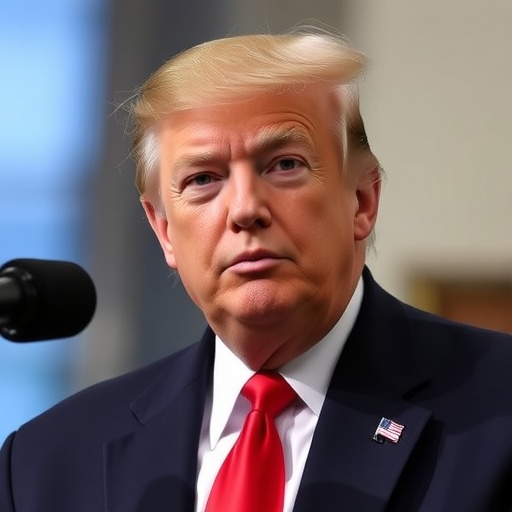Trump Commutes George Santos’ 7-Year Fraud Sentence: Outrage Grows Over Presidential Clemency Abuse
In a move that has ignited fierce national debate, President Donald Trump has commuted the seven-year prison sentence of former U.S. Representative George Santos, convicted of wire fraud, identity theft, and money laundering. The decision, announced late Friday evening from the White House, frees Santos just months into his term at a federal penitentiary in New York, prompting accusations of cronyism and misuse of presidential powers.
Santos, the disgraced New York Republican who captured headlines for fabricating his resume and campaign finances, was sentenced in March 2024 after pleading guilty to multiple counts of fraud. His release has stunned legal observers and political analysts, who see it as a bold assertion of Trump’s authority amid his ongoing legal battles. “This is a blatant abuse of power,” said one prominent constitutional lawyer, underscoring the growing controversy surrounding the commutation.
Santos’ Rapid Descent: From Congress to Conviction
George Santos’ political career was a whirlwind of ambition and deception that unraveled almost as quickly as it began. Elected to represent New York’s 3rd Congressional District in 2022, Santos quickly became a symbol of congressional dysfunction when revelations emerged that much of his personal and professional backstory was fabricated. He claimed Jewish heritage, a Wall Street career at Goldman Sachs, and even a college degree from Baruch College—none of which held up under scrutiny.
The scandals escalated in early 2023 when federal prosecutors charged him with 23 counts, including wire fraud, money laundering, theft of public funds, and lying to Congress. Investigations revealed Santos had used donors’ campaign contributions for personal luxuries, such as Botox treatments and designer clothing, while falsifying reports to the Federal Election Commission. “It was a house of cards built on lies,” U.S. Attorney Breon Peace stated during sentencing, emphasizing the betrayal of public trust.
By December 2023, the House of Representatives voted 311-114 to expel Santos, making him only the sixth member in history to face such a fate without a criminal conviction at the time. He pleaded guilty in January 2024, leading to his seven-year sentence—a term prosecutors argued was necessary to deter similar financial crimes in politics. Statistics from the Department of Justice show that fraud convictions in political campaigns have risen 15% over the past decade, with Santos’ case highlighting vulnerabilities in campaign finance laws.
During his brief tenure, Santos embodied the polarizing Trump-era GOP, aligning himself closely with the former president. He attended Trump rallies and defended the MAGA movement, even as his lies drew bipartisan condemnation. Supporters, however, viewed him as a victim of “deep state” persecution, a narrative that Trump would later echo in justifying the commutation.
Trump’s Clemency Call: Loyalty Over Accountability
President Donald Trump‘s decision to commute George Santos’ sentence stems from a long-standing pattern of using presidential powers to shield allies. In a White House statement, Trump described the action as “an act of mercy for a fighter who was unfairly targeted by radical left prosecutors.” He cited Santos’ vocal support during the 2024 election cycle, where the ex-congressman campaigned for Trump despite his legal woes.
The commutation, which reduces Santos’ sentence to time served without full pardon, was granted under Article II, Section 2 of the Constitution, allowing the president to commute federal sentences at discretion. Trump has wielded this authority aggressively; since returning to office in January 2025, he has issued over 50 commutations, many to individuals tied to January 6 rioters or his inner circle. Legal scholars note that while presidential powers in this realm are broad, they are not unchecked—Congress has debated reforms, such as the Clemency Accountability Act, to require justification for high-profile cases.
Insiders reveal that Santos’ legal team lobbied the White House for months, submitting letters from Republican donors and even a personal plea from Santos himself. “George is a patriot who made mistakes but paid the price,” Trump reportedly told aides, according to sources familiar with the discussions. This aligns with Trump’s history: during his first term, he pardoned figures like Joe Arpaio and Paul Manafort, often framing them as political prisoners.
Critics, including House Minority Leader Hakeem Jeffries, decried the move as favoritism. “Commuting the sentence of a convicted fraudster like Santos undermines the rule of law,” Jeffries said in a statement. Public reaction has been swift, with online petitions against the decision garnering over 200,000 signatures within 24 hours.
Legal Battles Ignite: Challenges to Trump’s Authority
The commutation has thrust presidential powers into the spotlight, with lawsuits already filed to challenge its validity. The American Civil Liberties Union (ACLU) announced plans to sue, arguing that Trump’s selective use of clemency violates equal protection principles under the 14th Amendment. “This isn’t justice; it’s a get-out-of-jail-free card for Trump’s friends,” ACLU executive director Anthony Romero declared.
Constitutional experts are divided. Harvard Law professor Laurence Tribe called it “a dangerous precedent,” pointing to historical abuses like President Ford’s pardon of Nixon. In contrast, conservative commentator Alan Dershowitz defended Trump, stating on Fox News, “The president has absolute discretion here—it’s a check on judicial overreach.” Data from the Pew Research Center indicates that 62% of Americans believe presidential pardons are used too often for political gain, a sentiment amplified in this case.
Santos’ original trial featured damning evidence: prosecutors presented bank records showing $400,000 in fraudulent transactions, including falsified unemployment claims during the COVID-19 pandemic. Identity theft charges arose from Santos using stolen donor identities to inflate campaign contributions. His guilty plea avoided a trial, but the seven-year sentence included $373,000 in restitution and three years of supervised release—provisions that the commutation partially upholds, requiring Santos to repay victims but freeing him immediately.
As the controversy unfolds, ethicists worry about the erosion of accountability in Washington. The Senate Judiciary Committee, chaired by Sen. Dick Durbin (D-IL), has scheduled hearings for next week to examine the scope of presidential powers in clemency matters, potentially leading to legislative curbs.
Political Ripples: GOP Divisions and Democratic Fury
Within the Republican Party, Trump’s commutation of George Santos’ sentence has exposed fractures. While MAGA loyalists rally behind the decision, moderate Republicans like Sen. Mitt Romney have expressed dismay. “Fraud is fraud, regardless of party,” Romney tweeted, signaling potential pushback in the Senate.
Democrats, fresh off midterm gains, are leveraging the issue to portray Trump as corrupt. House Speaker Nancy Pelosi, in a fiery press conference, accused Trump of turning the Oval Office into a “personal favor factory.” Polling from Gallup shows Trump’s approval rating dipping to 42% post-commutation, with independents particularly alienated by the perceived abuse of power.
Santos, now 36, emerges from prison into a media storm. He plans to reside in Florida, away from New York’s scrutiny, and has teased a potential return to politics. “I’m grateful to President Trump for giving me a second chance,” Santos said in his first post-release interview with Newsmax. His story resonates with themes of redemption in Trump’s narrative, but victims of his fraud—many small donors—feel revictimized. One anonymous donor told CNN, “He stole from hardworking families like mine, and now he’s free to lie again.”
The episode also ties into broader discussions on campaign finance reform. The Federal Election Commission reported over $1 billion in questionable donations in the 2024 cycle, fueling calls for stricter oversight. Advocacy groups like Common Cause are mobilizing, urging Congress to close loopholes exploited by figures like Santos.
Future Fallout: Appeals, Reforms, and Santos’ Next Move
Looking ahead, the commutation’s implications could reshape American politics and the judiciary. Federal prosecutors in the Eastern District of New York have 30 days to appeal the decision, though success is unlikely given the Supreme Court’s deference to executive clemency. If appealed, the case might reach the high court, testing the boundaries of presidential powers in a divided 6-3 conservative majority.
For George Santos, freedom brings new challenges. He must complete restitution payments and avoid further legal entanglements, but whispers of a podcast or consulting gig suggest he’s eyeing the spotlight. Trump, meanwhile, may use this as leverage in his ongoing disputes with the Justice Department, where his own fraud-related cases loom.
Bipartisan efforts for clemency reform are gaining traction. A proposed bill in the House would mandate public hearings for commutations involving public officials, aiming to curb what critics call “pay-to-play” pardons. As one watchdog group noted, “Without checks, presidential powers become a tool for impunity.” The saga of Trump and Santos underscores a pivotal moment: will accountability prevail, or will loyalty continue to trump justice?
In the coming months, expect intensified scrutiny on White House decisions, with midterm elections amplifying the debate. Victims’ rights advocates are pushing for expanded compensation funds for fraud cases, while political strategists predict this could cost Republicans suburban seats. As Santos steps back into public life, the nation watches whether his commutation marks the end of one scandal or the spark for many more.








